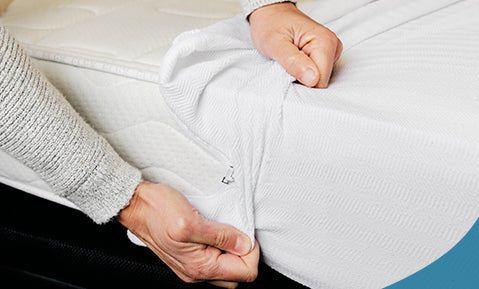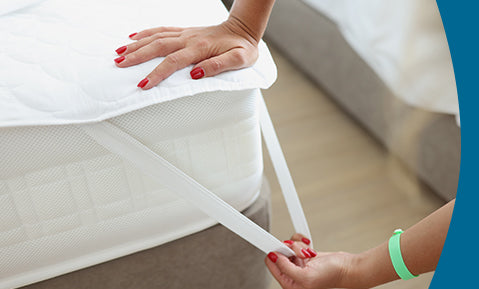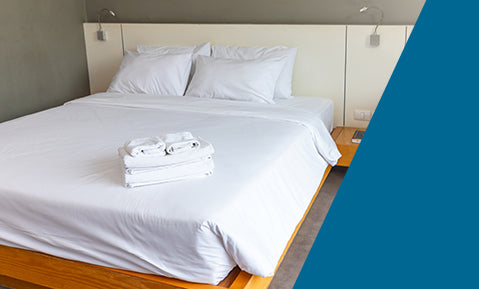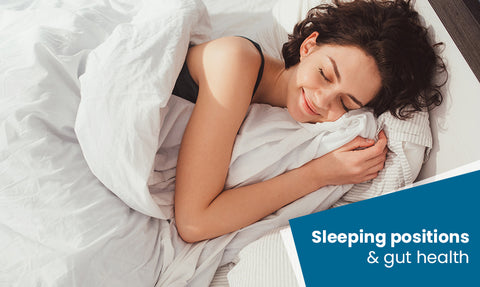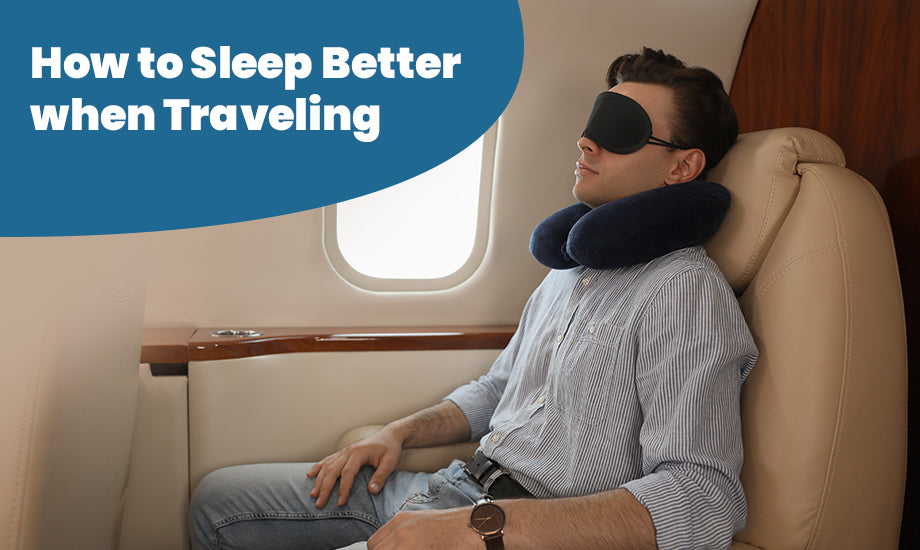
Poor sleep is never ideal, regardless of whether you're traveling for work or for enjoyment. Trying to sleep on a long drive or an overnight trip can result in waking up disoriented, exhausted, and annoyed. But it's not necessary to be so.
Reasons you can’t sleep when you are traveling
- Exhaustion from Travel

Even when on vacation, traveling can cause physical and mental stress. You may develop what is known as travel fatigue. Travel fatigue can leave you drained, give you headaches, cause you to sleep less, and cause other problems. Some of the elements that can lead to travel sickness are as follows:
- Flight or transport phobia
- Be concerned about travel aspects such as packing, time, and logistics.
- Concerns about unforeseen complications that may arise during the trip
- Car sickness or aircraft sickness
- Long-distance travel
- Travel disruptions
- Inability to sleep on aircraft, trains, or automobiles
- Pressurized airplane cabins induce dehydration, bloating, constipation, and respiratory issues.
- Travel-related disruptions to your diet or water cycle
- Sitting for lengthy periods of time causes stiffness and pain.
- Jet lag

Jet lag is a sleep problem that occurs while traveling across three or more time zones. When you reach your destination, your circadian rhythm may still be operating in the time zone where you started. As a result, you may feel disconnected from your present time zone.
This is most common while flying long distances, although it can also happen if you travel swiftly enough by car or train. Jet lag symptoms include exhaustion, fogginess, gastrointestinal issues, and a general sensation of malaise. Jet lag usually passes in a few days, although it can continue for several weeks. It is even harsher while traveling from west to east.
- New place
Simply being in a different atmosphere or bed can interfere with your sleep and relaxation. You may have personal experience with this, but it has also been validated in sleep studies. Even if the foreign setting appears to be quite nice, such as a spa or resort, it can have a detrimental impact on your sleep. This usually starts to feel better after the first night in a new environment.
- Schedule Modifications
Changing your typical schedule can lead to sleep issues. Changing your eating or sleeping habits, for example, can be tremendously upsetting to your body and mind. This is especially challenging on business or vacation journeys when you want to be well rested and present.
Consequences of not sleeping properly while traveling
Short-term sleeplessness can be harmful to one's physical, mental, and emotional wellbeing. Lack of sleep affects your thinking, can cause tiredness during the day, irritability, and diminish your energy level. Inadequate sleep can increase the likelihood of an accident, which is especially dangerous when driving.
These repercussions reduce the value of quality trips. Without enough sleep, business travelers and athletes may not perform optimally, and vacationers may enjoy their holiday less. While travel-related sleep difficulties are typically a short-term issue, they can become chronic for persons who travel frequently or are predisposed to sleeping disorders.
How to manage your sleep while traveling

Whether you're traveling for work or pleasure, getting enough sleep can help you have a more successful and pleasurable trip. While there is no one-size-fits-all solution, there are several steps you may take before and during travel to minimize sleep interruptions.
- Pre-Travel Stress Reduction
Anxiety in the run-up to a trip can interfere with both your sleep and your peace of mind. Arrange ahead of time so you aren't scrambling at the last minute to pack, plan your itinerary, or get to the airport.
- Sleeping on planes, trains and buses
Many people fall asleep comfortably on flights, railways, and buses, but others find it difficult. If sleeping in transit does not come easy to you, avoid planning vacation arrangements that rely on it. A night flight or midnight train may appear to be a wonderful way to save time or money, but it can backfire if you can't sleep on board. If you find yourself wanting or needing to sleep on a plane, train, or bus, make yourself as comfortable as possible:
- Dress in loose-fitting, breathable clothing and bring an extra layer in case it gets cold.
- If possible, recline because studies have shown that it increases both the quantity and quality of sleep.
- Use headphones or earplugs to block out your surroundings, as well as something to cover your eyes, such as a jacket or sleep mask.
- Bring a travel pillow or a small bag of clothes to support your head.
- Travel during off-peak hours if available, when there will be less disturbance and a better possibility of having extra space to stretch out and sleep.
- Avoid and Overcome Travel Fatigue
A lengthy travel day can be exhausting, but getting enough rest allows you to recover fast. Don't overbook the first few days of your trip, and leave plenty of time for sleeping. To stay hydrated, drink water before, during, and after your trip day. Because you may be exposed to pathogens on board, wash your hands frequently or use sanitizing gel. This is especially crucial when flying because it can make you more susceptible to respiratory infection.
- Developing Healthy Habits
It's natural to want to indulge on vacation, but you may still benefit from sticking to basic healthy behaviors as much as possible:
- Eat wisely: Eat a well-balanced diet rich in fruits and vegetables, and avoid heavy meals on travel days when it is more difficult to be physically active.
- Stay hydrated with water and avoid sugary drinks.
- Moderately consume alcohol and caffeine: Alcohol can disrupt your sleep cycles, and caffeine is a stimulant that can keep you awake at night if used too late in the day.
- Exercise on a daily basis: You don't have to go all-out with workouts, but try to go for a walk or do another form of meaningful physical activity every day.
- Use relaxation techniques: Deep breathing and mindfulness meditation can help to quiet your body and mind, lowering tension and making it easier to sleep.
How to deal with jet lag
It is vital to realign your circadian rhythm with your new time zone in order to overcome jet lag. Exposure to natural light and melatonin supplementation can be useful, but timing is critical to avoid additional desynchronization of your internal clock.
Discuss a plan for conquering jet lag with your doctor, or use a tool like Jet Lag Rooster or the Time-shifter app to create a sleep schedule, light exposure, and taking melatonin to help reduce jet lag.
Travel accessories that might help you with your sleep
Depending on your budget, there are a variety of gadgets and products that might help you sleep and feel better while traveling:
- Travel pillow that is small or inflatable.
- Sleeping mask.
- Earplugs or noise-canceling headphones are recommended.
- Loose outfits like trousers or other comfortable clothing.
- A machine or programme that generates white noise.
- Meditation can be accomplished using audio recordings or an app.
- Stay hydrated with a water bottle.
- Snacks that are both healthful and portable.
- To avoid itchy sheets, use a sleeping bag liner.
Plan your lodgings carefully
This advice relies heavily on planning. You should conduct some study to ensure that your accommodations can give a comfortable sleeping environment. If your hotel is on a busy street and you are used to it being exceptionally quiet at night, you may have a difficult night.
Dark coloured curtains, a comfy mattress, and a clean room are just a few of the things that can help you sleep better. A list of given items and amenities should be available at your hotel. When selecting a hotel, be sure that rest is a major concern.
Avoid alcohol, nicotine and coffee as much as possible

You're on vacation, and this seems blasphemous. However, alcohol may cause you to sleep like a log at first. According to research, it reduces the overall quality of sleep. Furthermore, because it is a diuretic, your sleep will most likely be disrupted by frequent bathroom breaks. Anything that disrupts your sleep routine as your body adjusts to a new rhythm is a bad idea.
Coffee and nicotine, like alcohol, can disrupt your sleep routine, making it difficult to readjust your schedule. Coffee and nicotine are stimulants that efficiently encourage your body to stay awake. Caffeine can remain in your body for up to six hours, so try to restrict your intake in the afternoon. Nicotine is addictive, and people typically experience withdrawal symptoms when sleeping due to the short duration of its effects. These may result in unwelcome midnight awakenings and restless sleep.
Should you take sleeping pills when you are traveling
Sleeping pills can be prescription pharmaceuticals, over-the-counter treatments, or nutritional supplements. Almost all formulations cause drowsiness, which may aid in sleep while in transit or at your destination.
While sleep aids may be attractive, it is critical to evaluate their drawbacks. They can cause substantial grogginess, which can be dangerous when traveling, especially if you have to drive. Sedatives may keep you seated for too long on long-distance flights, increasing the risk of blood clots.
Sleeping pills’ effects can linger the next day, lowering your thinking and reaction time. Drowsiness caused by sleep aids can increase the likelihood of a fall or other accident. The best approach to weigh the benefits and hazards of sleeping drugs is to consult with your doctor, who can determine which, if any, sleeping medicines are right for you.
Should You Nap While Traveling?

If you're running low on sleep while traveling, napping can be rejuvenating, but don't overdo it. If you take a long snooze, you may wake up even groggier. Long naps, as well as naps in the late afternoon or evening, can disrupt your sleep routine.
To reap the benefits of naps while minimizing the risks, try to nap for no more than 30 minutes and no more than 60 minutes. Naps are normally best taken just after lunch, and naps later in the day should be avoided.
Sleep may be the last thing on your mind while planning a holiday, yet it can make or break your trip. Adopting a few easy modifications can have a significant impact on your sleep, and planning ahead of time can put you on the fast track to dreamland. It takes a lot of energy to travel the world, so take your rest seriously - no one wants to spend the entire vacation asleep in their hotel room.

